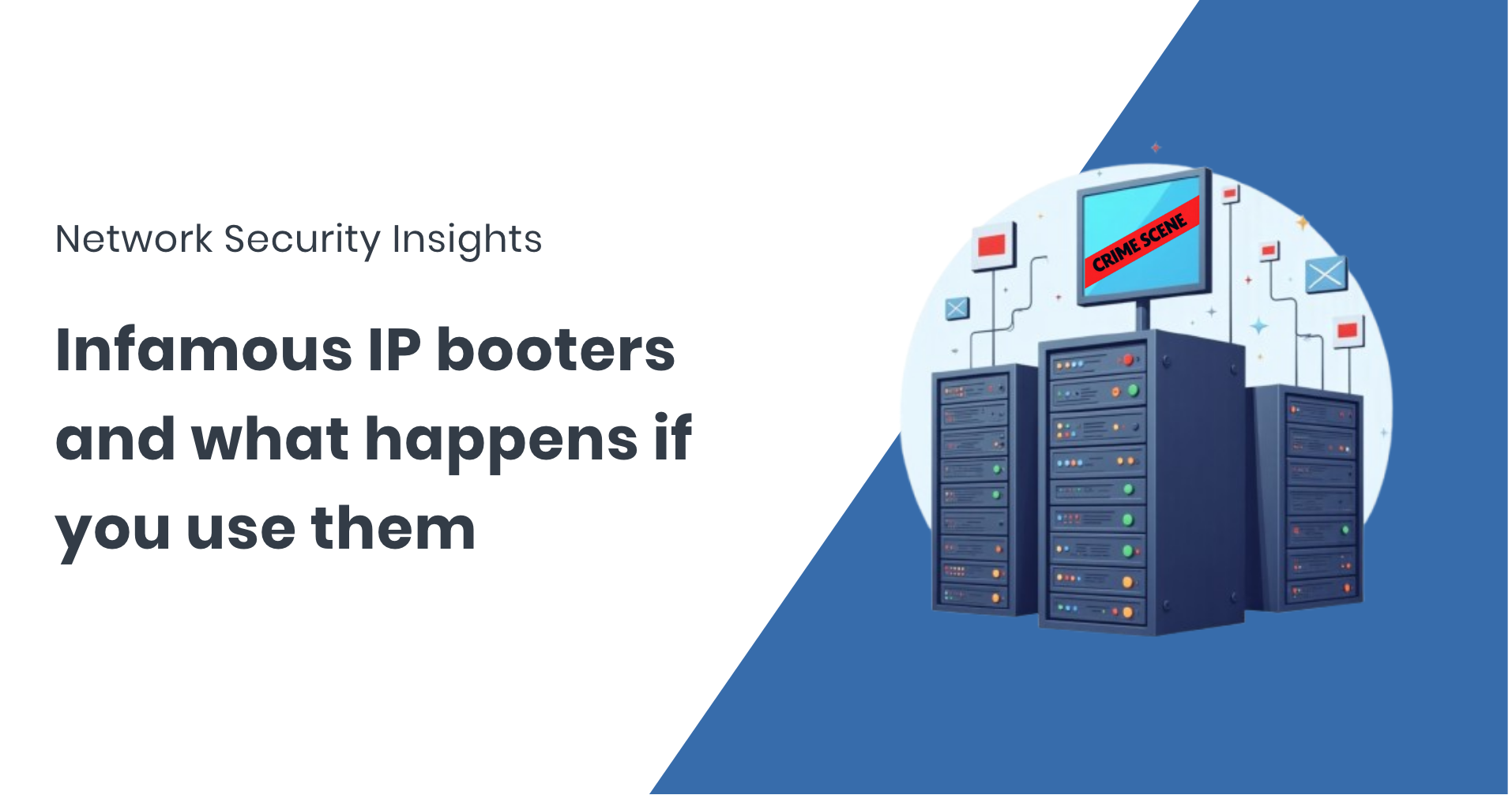
Some of the largest IP booter services listed – and what happens if you use them
Hiring a DDoS attack used to mean building a botnet or knowing someone who had. Booter services changed all that: pay a small fee, enter your target’s IP address, and a DDoS booter service does the rest. Schools, banks, gaming servers, nothing has been off-limits. Cheap prices and click-and-go dashboards have attracted countless first-time offenders into cybercrime and caused real-world outages that cost companies millions.
In this article, we will list some of the infamous DDoS booter services and explain what the real-world consequences are for anyone employing them.
How to hire an IP booter?
A booter site sells ‘attack time’ much like a vending machine sells snacks, with the difference that buying a DDoS attack is a crime in most countries. The buyer enters the victim’s IP address, pays a fee, and presses ‘launch.’ The service then unleashes a surge of junk traffic from hijacked computers around the world. Legitimate requests can’t get through, so websites, payment gateways or game servers freeze until the flood stops or is filtered out. If you are new to this topic, read our previous article explaining IP booters and stressers in detail.
What are some of the well-known IP booter services?
Here is a short list of the most notorious DDoS booter services:
- Webstresser – once the market leader, linked to four million attacks before its 2018 takedown.
- Quantum – advertised “instant power”, later cited by the FBI for 50,000 attacks.
- ZDstresser, OrbitalStress, StarkStresser – some of the largest of the 27 sites seized in late-2024’s Operation PowerOFF sweep.
- DigitalStress, Stresser.tech, RoyalStresser – individual brands whose admins have since pleaded guilty or faced trial.
Each closure followed the same pattern: domains seized, servers imaged, and user lists passed to law enforcement for further investigation.
What is Operation PowerOFF?
Over the past few years, police have been busy taking the worst offenders offline. As cybercrime often expands over national borders, law enforcement came up with a specialised international unit to combat the issue – Operation PowerOFF.
Launched in 2018 and very much active to date, Operation PowerOFF brings together the FBI, Europol, the UK’s NCA, Dutch and German cybercrime units and a dozen others. Cloud providers and payment firms tip off police when a new DDoS booter pops up; detectives trace hosting, freeze cryptocurrency wallets and arrest the operators. The most recent phase pulled 27 sites in one night and led to arrests in France, Germany, the US and the Netherlands. Hundreds of paying customers have since received warning letters, and some may face prosecution.
What happens if you use an IP booter?
If you are reading this article and considering DDoS for hire via an IP booter service, our message is very clear: do not do it. Conducting a DDoS attack is a cybercrime, punishable by law in most countries.
For example, many people who bought ‘ten-minute stress tests’ from the now-seized websites were teenagers testing game servers. Even if the sites guarantee anonymity, law enforcement will be able to trace individual users who paid for booter services. Police say ignorance is no defence: using a booter is an unauthorised attack, and you are responsible for it. Past cases show penalties ranging from cautions and equipment confiscation to full criminal convictions. It is also wise to consider that employers and universities now run background checks that spot these records.
How to stay protected from DDoS-for-hire?
Booter services may be dropping like flies, yet copy-cats appear just as fast. Organisations should treat low-cost DDoS floods as part of everyday threat modelling:
- A layered defence combining on-premise mitigation with cloud scrubbing keeps bandwidth free for legitimate users.
- Always-on monitoring spots sudden traffic spikes before they snowball.
- Automated blocking: for example, RTBH or FlowSpec rules correctly configured will mitigate most IP booter attacks.
About FastNetMon
FastNetMon is a leading solution for network security, offering advanced DDoS detection and mitigation. With real-time analytics and rapid response capabilities, FastNetMon helps organisations protect their infrastructure from evolving cyber threats.
For more information, visit https://fastnetmon.com